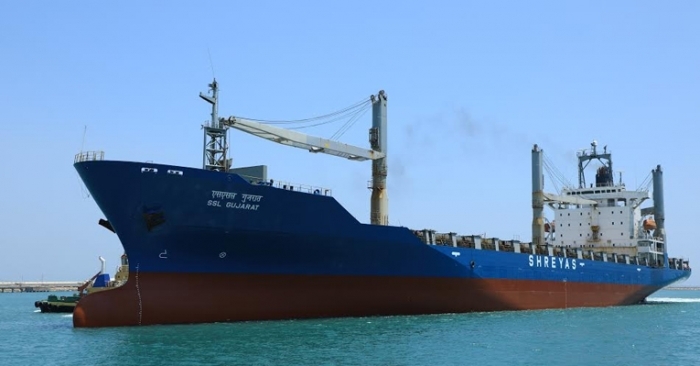Indian-flag vessels permitted to call at Sri Lankan and Bangladeshi ports with a mix of coastal and EXIM cargo
March 7, 2019: Indian National Ship-owners Association (INSA) has lauded the recent move by the Central Board of Indirect Taxes and Customs (CBIC) to permit Indian-flag vessels to make calls enroute at Sri Lankan and Bangladeshi ports during their EXIM and domestic services.

March 7, 2019: Indian National Ship-owners Association (INSA) has lauded the recent move by the Central Board of Indirect Taxes and Customs (CBIC) to permit Indian-flag vessels to make calls enroute at Sri Lankan and Bangladeshi ports during their EXIM and domestic services.
A circular issued by CBIC in this regard mentions that INSA had approached the central body to grant permission to Indian ships to carry out voyages carrying mixed cargo, both EXIM and domestic. "Earlier, Indian vessels were not permitted to make calls into foreign ports despite such ports were en route on Indian ships' domestic services between the East and West coast ports of India. Thus, Indian ships engaged on such trades were unable to make optimum use of their space and were incurring higher cost of transportation on both the EXIM and domestic coastal cargoes," Anil Devli, CEO, INSA said.
In a letter to Finance Minister Arun Jaitley, Devli also thanked the CBIC and all concerned officials for the move that will benefit the industry and the country.
It may be recalled that the Sea Cargo Manifest and Transhipment Regulations, 2018 provided for the procedures for transit of coastal goods through the foreign territory of Sri Lanka and Bangladesh. These regulations envisaged a completely automated platform for the movement of coastal goods through the designated foreign territory or otherwise.
The procedure for transit of imported as well as indigenous goods through foreign territory had already been laid down in Transportation of Goods (Through Foreign Territory) Regulations, 1965. However, unlike the Sea Cargo Manifest and Transshipment Regulations, 2018, the country names i.e. Sri Lanka and Bangladesh were not specifically mentioned.
While the procedure for movement of imported goods/export goods is streamlined, certain difficulties had been expressed in the case of movement of coastal goods through foreign territory, more so where the coastal cargo is non-containerised. These difficulties mainly related to documentation as such goods were required to follow the procedures prescribed for coastal goods as well as the procedures in Transportation of Goods (Through Foreign Territory) Regulations, 1965. CBIC's latest circular will harmonise the processes making it easier for Indian flagships to ensure optimum capacity utilization and help develop a level playing field vis-a-vis foreign flagships.



